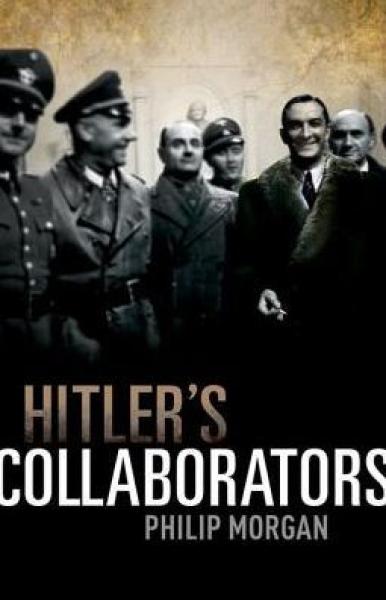Description
Author Philip Morgan moves away from the usual suspects and focuses instead on the businessmen and civil servants who felt obliged to cooperate with the Nazis. These were the people who faced the most difficult choices and dilemmas by dealing with the various Nazi authorities and agencies, and who were ultimately responsible for gearing the economies of the occupied territories to the Nazi war effort. It was their choices which had the greatest impact on the lives and livelihoods of their fellow countrymen in the occupied territories, including the deportation of slave-workers to the Reich and hundreds of thousands of European Jews to the death camps in the East.
In time, as the fortunes of war shifted so decisively against Germany between 1941 and 1944, these collaborators found themselves trapped by the logic of their initial cooperation with their Nazi overlords -- caught up between the demands of an increasingly desperate and extremist occupying power, growing internal resistance to Nazi rule, and the relentlessly advancing Allied armies.
Hitler's Collaborators focuses the spotlight on one of the most controversial and uncomfortable aspects of the Nazi wartime occupation of Europe: the citizens of those countries who helped Hitler. Although a widespread phenomenon, this was long ignored in the years after the war, when peoples and governments understandably emphasized popular resistance to Nazi occupation as they sought to reconstruct their devastated economies and societies along anti-fascist and democratic lines.00Philip Morgan moves away from the usual suspects, the Quislings who backed Nazi occupation because they were fascists, and focuses instead on the businessmen and civil servants who felt obliged to cooperate with the Nazis. These were the people who faced the most difficult choices and dilemmas by dealing with the various Nazi authorities and agencies, and who were ultimately responsible for gearing the economies of the occupied territories to the Nazi war effort. It was their choices which had the greatest impact on the lives and livelihoods of their fellow countrymen in the occupied territories, including the deportation of slave-workers to the Reich and hundreds of thousands of European Jews to the death camps in the East.00In time, as the fortunes of war shifted so decisively against Germany between 1941 and 1944, these collaborators found themselves trapped by the logic of their initial cooperation with their Nazi overlords ? caught up between the demands of an increasingly desperate and extremist occupying power, growing internal resistance to Nazi rule, and the relentlessly advancing Allied armies.
A subject as contentious and divisive as the Nazi occupation of wartime Europe deserves a historian of Philip Morgan's stature... Hitler's Collaborators is meticulously researched. There is a wealth of empirical detail, much of which demonstrates the complexities of the interaction between business and politics in a fraught wartime situation. -- Andrew Moore, Labour History
Focussing on Western and Northern countries in Hitler's Europe, Philip Morgan illustrates and assesses the captivating history of collaboration with the German occupier during the Second World War. It ranges from the appeasing and accommodating attitudes during the early phase of Nazi-occupation to the ambivalent role of state officials and businessmen, and finally, discusses the deplorable collusion and complicity in the deportation of Jews. Far from moralizing, Morgan's meticulous study explains the realities and reasons as well as the consequences of this equally diverse and disturbing phenomenon.-- Gerhard Hirschfeld, University of Stuttgart
In common with studies of resistance to Nazi occupation during the Second World War, the myriad forms of collaboration have largely been studied from a purely national perspective. In an overtly comparative and accessibly written approach to the subject, Philip Morgan sets out to summarize the debates on state, bureaucratic and economic collaboration during the Nazi occupation and provides his own distinctive analysis to explain the behaviour of all those involved.-- Professor Bob Moore, University of Sheffield
In Hitler's Collaborators: Choosing between Bad and Worse in Nazi-Occupied Western Europe, Philip Morgan provides an essential synthesis of wide-ranging Nazi occupation policy across Western Europe from a base of secondary sources in several languages. -- Jadwiga Biskupska, H-War
Product Details
- Oxford University Press, Brand
- Aug 14, 2018 Pub Date:
- 0199239738 ISBN-10:
- 9780199239733 ISBN-13:
- 384 Pages
- 9.3 in * 6.3 in * 1.5 in Dimensions:
- 1 lb Weight:




